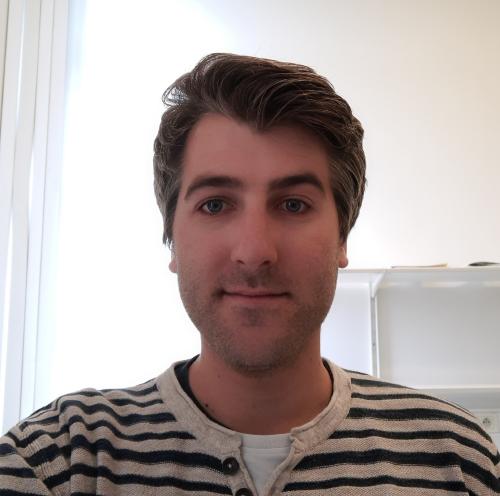You are here :
- EUTOPIA website
- Home
- Research & Innovation
- Fellowship
- SIF - Post-Doctoral Fellowships
Hannes Houck, University of Warwick

Curriculum Vitae
Hannes Houck, PhD
- Education
Dr Hannes Houck undertook joint postgraduate studies under the supervision of Filip Du Prez and Christopher Barner-Kowollik wherein he developed a thermally induced bonding/debonding strategy that allowed for the on-demand creation of covalent adaptable polymer materials with defined curing temperatures and reprocessing conditions.
Following alternating research stays in Belgium, Germany and Australia, he became fascinated about how light is capable of altering the chemical nature of small organic molecules that in turn can change a material's macroscopic properties, such as strength and colour, leading him to develop photoresists for reversible surface patterning and 3D laser writing.
In December 2018, he was awarded a dual PhD degree in Chemistry from Ghent University, Belgium and the Karlsruhe Institute of Technology, Germany (summa cum laude).
- Experience
Afterwards, Dr. Houck continued as a postdoctoral fellow in the polymer chemistry research group at Ghent University and became the lead researcher on a new type of light-responsive, so-called 'light-stabilized', dynamic materials and was involved in several industrial projects in the area of recyclable thermosets, on-demand curable coatings, and de-bondable adhesives.
In September 2021, he started at the University of Warwick in the United Kingdom with his current research situated at the interface of organic synthesis and polymer chemistry, focusing on the development of (new) photo- and thermo-responsive chemical building blocks that can be incorporated into polymer materials to aid their (re)processing and recycling.
Research Project:
Photo-switchable Covalent Dynamic Materials
Crosslinking is part of both natural and synthetic materials and is used to improve mechanical properties of e.g. rubber tires, hair, epoxy resins and has been the great driving force in the creation of the first-ever synthetic organic material ‘Bakelite’ at the start of the 20th century. And yet, the permanent 3D crosslinked structure of materials that results in their outstanding dimensional stability and durability presents a major worldwide challenge when it comes to Europe’s desire to move towards a circular economy. As a result, the design of such thermoset materials that exhibit switchable properties through reversible bond connectivity when exposed to external stimuli is highly desired as it brings the attractive feature of facilitating their structural repair, reshaping, disassembly and aid their recycling.
The overarching objective of this EUTOPIA-SIF project is to develop robust chemical strategies that allow to form, break and reform covalent bonds to devise sustainable polymer materials, such as hydrogels, coatings, and adhesives, that can be reversibly and repeatedly crosslinked through internal dynamic bond re-organisations so to address some of the societal challenges and global perspective of today’s plastic and polymer materials economy.


